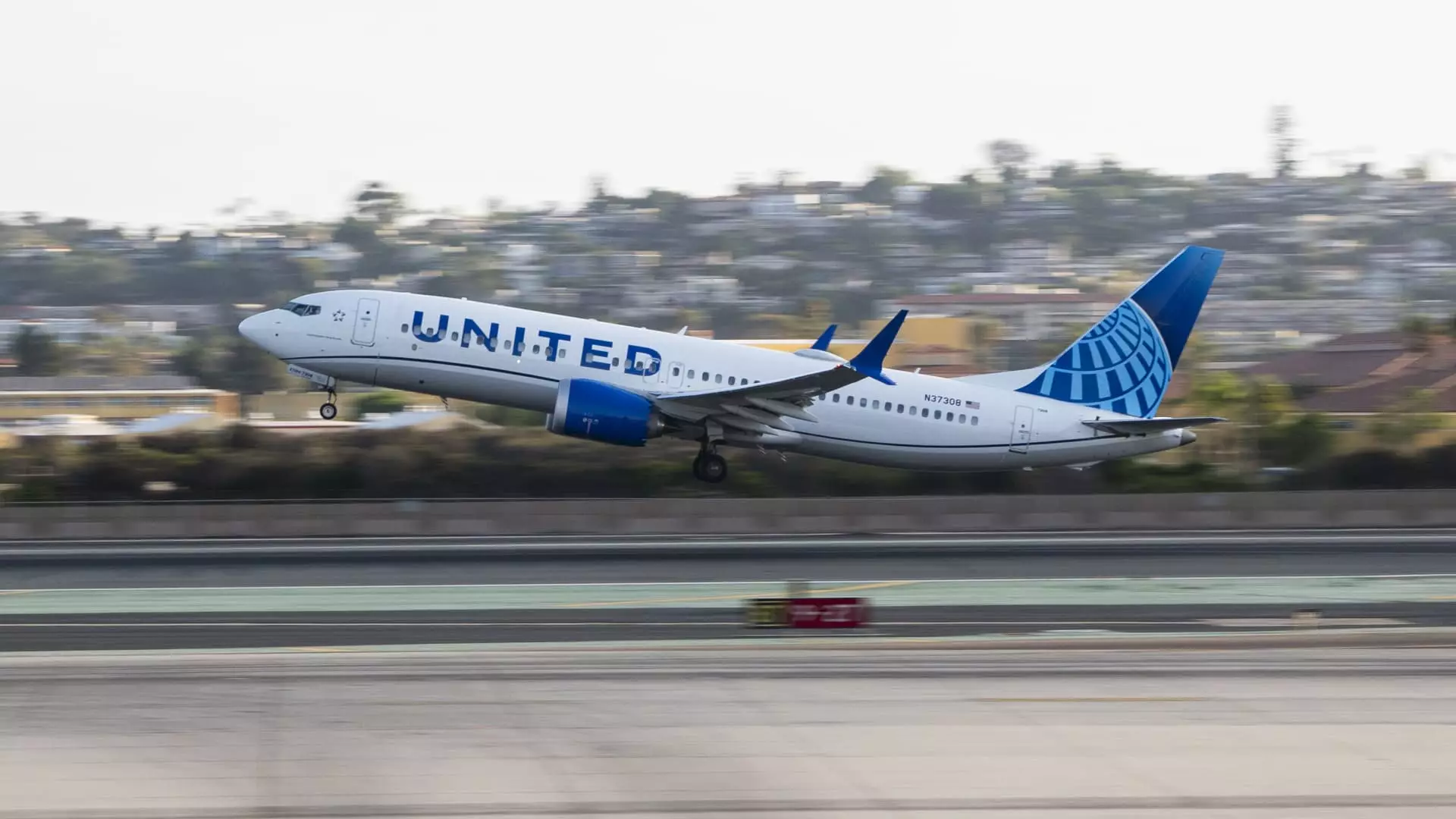United Airlines recently announced a significant shift in its financial strategy by initiating a $1.5 billion share buyback program. This move, coupled with unexpected earnings from the summer travel season, paints a picture of resilience within the airline despite the residual effects of the global pandemic. As the airline industry continues to evolve, United’s latest decisions reflect a strategic approach to financial management, which could set a precedent for other carriers in the market.
In its third-quarter earnings report, United Airlines outperformed expectations, reporting adjusted earnings per share of $3.33, compared to analysts’ forecasts of $3.17. Revenues also exceeded expectations, reaching $14.84 billion as opposed to the anticipated $14.78 billion. Although net income did decline by 15% year-over-year to $965 million, the overall performance illustrates a recovering demand in air travel, particularly during the summer months. United’s ability to surpass Wall Street’s projections signifies a robust underlying demand, responding to strategic capacity expansions and refined pricing models.
The Market Context: Recovery Post-Pandemic
The airline industry has undergone a tumultuous journey since the onset of the COVID-19 pandemic. Faced with crippling revenue losses, U.S. airlines received over $50 billion in government aid, which prohibited them from engaging in stock buybacks or paying dividends. The announcement of United’s share buyback marks an important return to pre-pandemic financial practices, signaling the airline’s newfound financial stability and optimism for future profitability.
Southwest Airlines has already made strides in this direction with a $2.5 billion repurchase plan announced last month. The return to share buybacks suggests that airlines are increasingly confident in their recovery and future earnings potential. United’s CEO Scott Kirby emphasized that despite the initiative, investments in workforce and operational upgrades remain a top priority. This dual focus on shareholder returns and business revitalization illustrates a balanced approach to corporate governance and responsibility.
The reported growth in corporate and premium revenue—up 13% and 5% respectively—indicates that travelers are willing to spend more on air travel, especially for business purposes. The airline’s basic economy ticket sales saw a remarkable increase of 20%, highlighting a shift in consumer preferences and travel behavior post-pandemic. Furthermore, United’s expansion into new international markets—such as Mongolia, Senegal, Spain, and Greenland—demonstrates the company’s commitment to capturing a larger share of the global travel market alongside its domestic operations.
As airlines continue to recover, the focus will also have to be on sustainability and environmental responsibility. United has made strides in these areas by exploring more eco-friendly flight options and working on sustainable fuels. The interplay between profitability and environmental considerations is an emerging theme that the aviation industry must navigate carefully while ensuring they meet stakeholder expectations.
Looking ahead, United Airlines will face several challenges that could impact its strategic objectives. The conversation with analysts scheduled for later this week is set to cover crucial topics such as demand forecasts for the remaining year and 2025. Additionally, the ongoing production issues at Boeing, stemming from a machinist strike that has halted many operations, pose a significant hurdle for fleet expansion and operational efficiency.
Moreover, United’s decision to resume share buybacks has not been without criticism. The flight attendants’ union, still in negotiations for a new labor agreement, has publicly slammed the airline’s focus on returns to shareholders over immediate workforce needs. Balancing shareholder interests with employee welfare and engagement will be critical for maintaining morale and loyalty among employees who are essential to the airline’s success.
As United Airlines ventures into a new chapter characterized by significant financial maneuvers, it is clear that the landscape of air travel has begun to change. With a strong earnings report and a strategic share buyback plan, United appears well-positioned for future growth, notwithstanding the challenges that lie ahead. The path forward must blend profitability with a robust commitment to workforce engagement and an eye toward sustainable practices as the company continues to evolve in a post-pandemic world. Airlines need to harness opportunities while carefully mitigating risks to navigate the complexities of a competitive and recovering industry.

